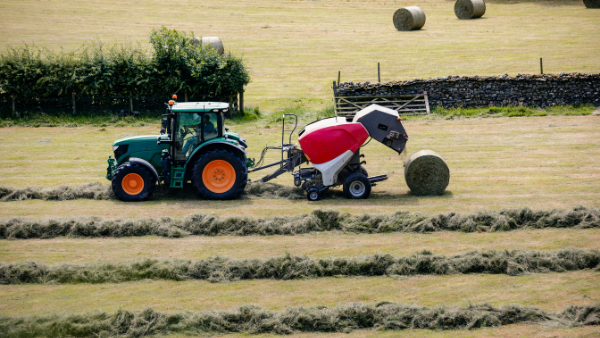Author
Earlier this week we highlighted the new regulations made under the Agriculture Act 2020 (2020 Act), which introduce changes to the Agricultural Holdings Act 1986 – the Agricultural Holdings (Requests for Landlord’s Consent or Variation of Terms and the Suitability Test) (England) Regulations 2021/619. In addition to the power for tenants to override tenancy restrictions (see Agriculture Act 2020: New power for AHA tenants to override tenancy restrictions | Michelmores) the new regulations also make changes to the rules on succession. We now explain these changes and highlight how they could impact on succession cases in practice.
New regulations on suitability
The 2020 Act made provision for new regulations to be made by the Secretary of State (and the Welsh Ministers) to abolish the commercial unit test in England and Wales and to set out a new suitability and business competency test.
Those Regulations have now been enacted in England[1]. They confirm that with effect from 1 September 2024, the commercial unit test will no longer form part of the eligibility test. Instead, succession applicants will only have to satisfy a 2-stage eligibility test:
- close relationship test; and
- principal source of livelihood test.
They will also have to satisfy a revised suitability test. The existing suitability provisions will be revoked on 1 September 2024[2] and replaced by the following provisions[3]:
“When determining … whether a person is suitable to become the tenant of a holding … the Tribunal must have regard to all relevant matters including—
(a) the person’s likely capability and capacity to farm the holding commercially, with or without other land, taking into account the need for high standards of efficient production and care for the environment in relation to managing that holding;
(b) the person’s experience, training and skills in agriculture and business management;
(c) the person’s financial standing and their character;
(d) the character, situation and condition of the holding;
(e) the terms of the tenancy,
“and having had regard to all relevant matters, the Tribunal must be satisfied that, if the applicant had applied in an open competition for [a 1986 Act tenancy of the holding]…, a prudent and willing landlord could reasonably be expected to regard the applicant as among the candidates to whom they would be willing to grant the tenancy.
The new provisions state that “the Tribunal must disregard—
(a) all offers as to rent in relation to the holding;
(b) the age of the person applying.”
The changes will apply to all applications where the date of death or the date of the giving of the retirement notice is on or after 1 September 2024. The existing rules will apply in full to all applications in advance of that date.
‘Business competency’
The final version of the new test largely reflects the outline details contained within Schedule 3, para. 17 of the 2020 Act. As expected, the provisions focus strongly on business management skills. For the first time, there is also a requirement for the Tribunal to consider the applicant’s ability to manage the holding in a manner which cares for the environment.
However, they do not mirror the 2020 Act outline exactly. There is no reference at all to the applicant’s physical health, nor their age. The previous reference to age has not just been removed; the Tribunal is specifically directed to disregard the applicant’s age. Instead, applicants must have the “capability and capacity” to satisfy the other elements of the new test.
Age & health
Whilst historically the Tribunal has not tended to penalised applicants on the basis of their age (whether old or young), provided they were able to show that they had the necessary support and resources to farm the holding, the removal of all requirements relating to age and health is notable. It perhaps seems a little counter-intuitive to the other provisions, which are trying to achieve a successor who is in the best position to farm productively and push the business forward.
Indeed, the objective in abolishing the commercial unit test and introducing the new provisions was to improve productivity, and allow farmers operating on a larger scale to succeed if all other conditions are met. It is likely to lead to a shift in the demographic of succession candidates. Whilst the focus on applicants with commercial acumen is to be welcomed, it will be met with caution in some quarters, as it opens the door to those who may not be dependent on the holding in quite the same way the rules traditionally required.
“All relevant matters” & hypothetical tendering process
It is noteworthy that the Tribunal is to consider “all relevant matters” and the list set out at (a) – (e) above is not exhaustive. Having had regard to “all relevant matters” the Tribunal must also be satisfied in relation to a second criteria, which introduces a hypothetical tendering process. The Tribunal must be satisfied that if there had been an open competition for a 1986 Act tenancy, the applicant is among the candidates to whom a prudent and willing landlord would be willing to grant the tenancy.
This adds a new level of uncertainty for an applicant, although there is potentially some comfort from the fact that in such a hypothetical situation they need only show they are “among the candidates” to whom the landlord would be willing to grant the tenancy, rather than being able to show they are the only or sole candidate to whom the tenancy should be granted. It remains to be seen whether this hypothetical test will cause difficulties for applicants.
Timing:
We are pleased that the Government has ensured the changes will not impact existing applications in any way, providing certainty for those who either have to lodge an application, or choose to do so, before the new rules come into effect.
There are likely to be numerous candidates for whom the new rules do not come quickly enough; whilst for potential retirement applicants, consideration should be given now as to which set of rules is most favourable to their individual circumstances.
Welsh update:
The new Regulations only relate to England. It is hoped that the Welsh Government will follow suit and implement the necessary 2020 Act Regulations in the near future, to give certainty to farming families on both sides of the border.
[1] The Agriculture Act 2020 (Commencement No. 1 and Transitional Provision) (England) Regulations 2020 (SI. 2020 No. 597) came into force on 17 May 2021
[2] Pursuant to SI 2021 No. 597
[3] Contained within the Agricultural Holdings (Requests for Landlord’s Consent or Variation of Terms and the Suitability Test) (England) Regulations 2021 (SI 2021 No. 619)

